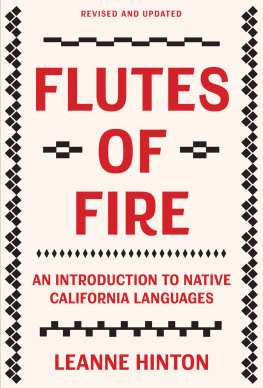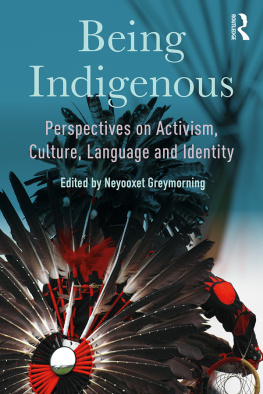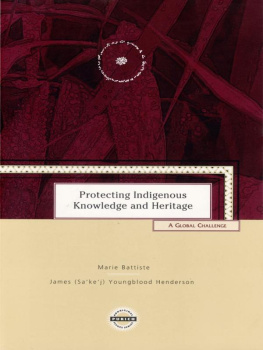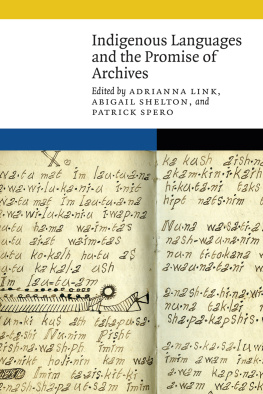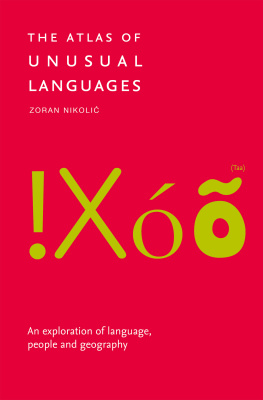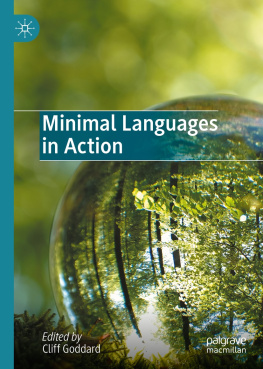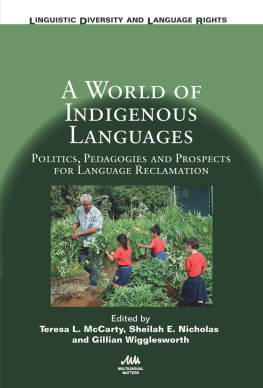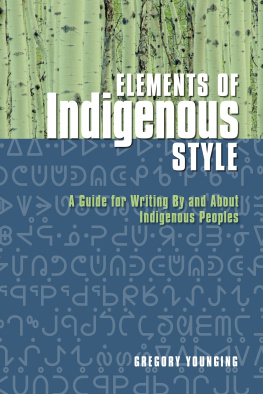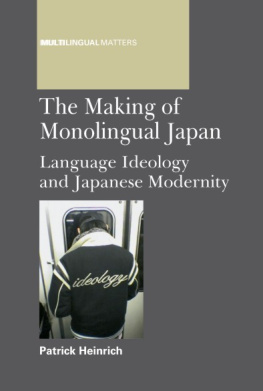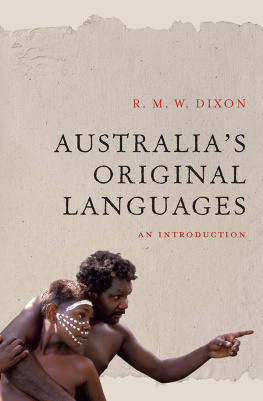
LINGUISTIC DIVERSITY AND LANGUAGE RIGHTS
Series Editor: Dr Tove Skutnabb-Kangas, bo Akademi University, Finland
Consulting Advisory Board:
Franois Grin, Universit de Genve, Switzerland
Kathleen Heugh, University of South Australia, Adelaide
Mikls Kontra, University of Szeged, Hungary
Robert Phillipson, Copenhagen Business School, Denmark
The series seeks to promote multilingualism as a resource, the maintenance of linguistic diversity, and the development of and respect for linguistic human rights worldwide through the dissemination of theoretical and empirical research. The series encourages interdisciplinary approaches to language policy, drawing on sociolinguistics, education, sociology, economics, human rights law and political science, as well as anthropology, psychology and applied language studies.
Full details of all the books in this series and of all our other publications can be found on http://www.multilingual-matters.com, or by writing to Multilingual Matters, St Nicholas House, 3134 High Street, Bristol BS1 2AW, UK.
Library of Congress Cataloging in Publication Data
Olthuis, Marja-Liisa.
Revitalising Indigenous Languages : How to Recreate a Lost Generation/Marja-Liisa
Olthuis, Suvi Kivel and Tove Skutnabb-Kangas.
Linguistic Diversity and Language Rights: 10
Includes bibliographical references.
1. Linguistic minorities. 2. Language maintenance. 3. Language policy. 4. Endangered languages. 5. Language attrition. I. Kivel, Suvi. II. Skutnabb-Kangas, Tove. III. Title.
P119.315.O58 2013
306.4494897dc23 2012044137
British Library Cataloguing in Publication Data
A catalogue entry for this book is available from the British Library.
ISBN-13: 978-1-84769-888-9 (hbk)
ISBN-13: 978-1-84769-887-2 (pbk)
Multilingual Matters
UK: St Nicholas House, 3134 High Street, Bristol BS1 2AW, UK.
USA: UTP, 2250 Military Road, Tonawanda, NY 14150, USA.
Canada: UTP, 5201 Dufferin Street, North York, Ontario M3H 5T8, Canada.
Copyright 2013 Marja-Liisa Olthuis, Suvi Kivel and Tove Skutnabb-Kangas.
All rights reserved. No part of this work may be reproduced in any form or by any means without permission in writing from the publisher.
The policy of Multilingual Matters/Channel View Publications is to use papers that are natural, renewable and recyclable products, made from wood grown in sustainable forests. In the manufacturing process of our books, and to further support our policy, preference is given to printers that have FSC and PEFC Chain of Custody certification. The FSC and/or PEFC logos will appear on those books where full certification has been granted to the printer concerned.
Typeset by Techset
Printed and bound in Great Britain by Short Run Press Ltd
TOOVL UPISOLMOO
Kal tun lah ovddii nl.
Jieh tun lah ennuvgin muttum
kyevtlov ivveest.
Mut lii-uv tust
kiel muttum?
Mon kielnsun
tuu kolgij tiervtti?
SMMIL NLI
Kukken jo uinm:
tuste lii smmil nli.
Tun lah mahtte
upis olmoo,
veik jiem tieegin
tuu noom.
Mut jiem mun kuittg
ee tuin maiden.
Mun ervidm:
tun jieh mti
smikiel.
A FORMER ACQUAINTANCE
Indeed, you are like before.
You havent changed so much
in about twenty years.
But have you gone through
a language change?
In what language
should I greet you?
A SAAMI LOOKALIKE
From far away I already see:
you look like a Saami.
You are like
an acquaintance
even if I dont know
your name.
But I wont
say anything to you.
I guess:
you dont speak
Saami.
Matti Morottaja, in Spmela, 1983, with the pseudonym Andrs Roggejvri, translated by Suvi Kivel and Marja-Liisa Olthuis, 2012
NOTHING
Nothing stays longer
in our souls
than the language we inherit.
It liberates our thoughts
unfolds our mind
and softens our life.
Paulus Utsi (born 1918), 1996: 111, translated by Roland Thorstensson
Contents
Acknowledgements
This book could never have been written without the participation of more or less the entire Aanaar Saami community, along with many other Saami and non-Saami individuals. Our special thanks go to the 17 CASLE (Complementary Aanaar Saami Language Education 20092010) graduates. Since the programme, they have been irreplaceable in the Aanaar Saami community, and they have played many important roles during the writing of this book. Liegg kijttoseh tijjn puohhid: Varpu Falck, Tuomo Huusko, Anne-Marie Kalla, Pia Kantola, va Kelemen, Mari-Anne Kenttmaa, Leena Kiviniemi, Tanja Kyr, Teija Linnanmki, Anna Morottaja, Yrj Musta, Maijukka Pyykk, Mervi Skopets, Terhi Rantanen, Riitta Vesala and Kaisa Vuolukka. One special graduate, Suvi Kivel, is one of the authors of this book. Uus tii pargo anarkiel pyerrin jotku kuhh ton pyerrin, et kiel kivruij j siiluij! May your work continue on behalf of Aanaar Saami (AS) and create new speakers to keep the language alive!
During the long writing process we have wondered whether we should name 17 or 18 CASLE participants. The 18th participant, Anja Kaarret, took part in two courses of the CASLE programme as a student but she also played a magnificent role as a Master/teacher/leader in the cultural parts of the programme. Anja also helped us in many ways during the writing of this book. Takk tunjin, Anja!
Mij halijdep kijtte puoh tievsmittemkovliitts kielmitrijd. Tii puohi kielsirdemmoht j kulttuuritubdmu lii merhm ennuv ub projektn j uppeid. We also thank all our Language Masters whose motivation to transmit their language and expertise has meant a lot for CASLE. All of the Masters cooperated in the documentation of the programme, as they were interviewed by CASLE graduate Anne-Marie Kalla.
Our special thanks go to our colleagues Irmeli Moilanen and Annika Pasanen, whose expertise was desperately needed during the CASLE programme. They have also generously helped us to get this book published.
We would like to thank all of the CASLE instructors for playing such important roles: Petter Morottaja, Petra Kuuva, Matti Morottaja, Taarna Valtonen and Annika Pasanen. Marja-Liisa, one of the authors of this book, also acted as an instructor. Marjo-Riitta Mattus was a great help during student selection and during the start-up and end of the programme.
We send our warmest thanks to the teachers of the culture courses: Anja Kaarret, Petter Morottaja, Aslak Saijets and Elsa Visnen. Sadly, our thanks cannot reach the AS handicrafts Master Aili Maarit Valle in person; she is no longer with us, but we are grateful to her all the same.
We have received valuable help and information from our colleagues at the Saami Parliament, Hannu Kangasniemi and Ulla Aikio-Puoskari. We would also like to thank Katriina Morottaja, Mari Palolahti, Irja Seppnen and Pentti Tarvainen from the municipality of Aanaar for their expertise and kind cooperation during the project. Professor Lea Laitinen kindly shared the language learning experiences she had with her own Language Master in Aanaar some decades ago. Tytti Brysy was responsible for the maps used in this book. Lee Rodgers helped with many parts of this book to get them into proper English. Ulla Isotalo, Anneli Lappalainen, Ima Aikio-Arianaick and Frode Grnmo have documented parts of the CASLE programme on many occasions. Takk tijjn puohhid


